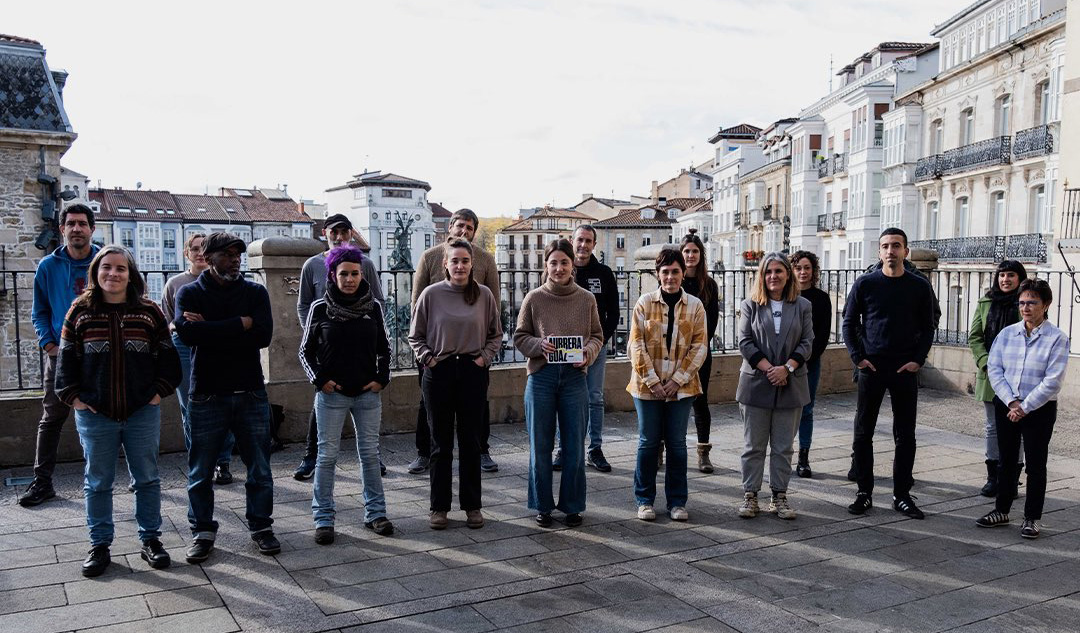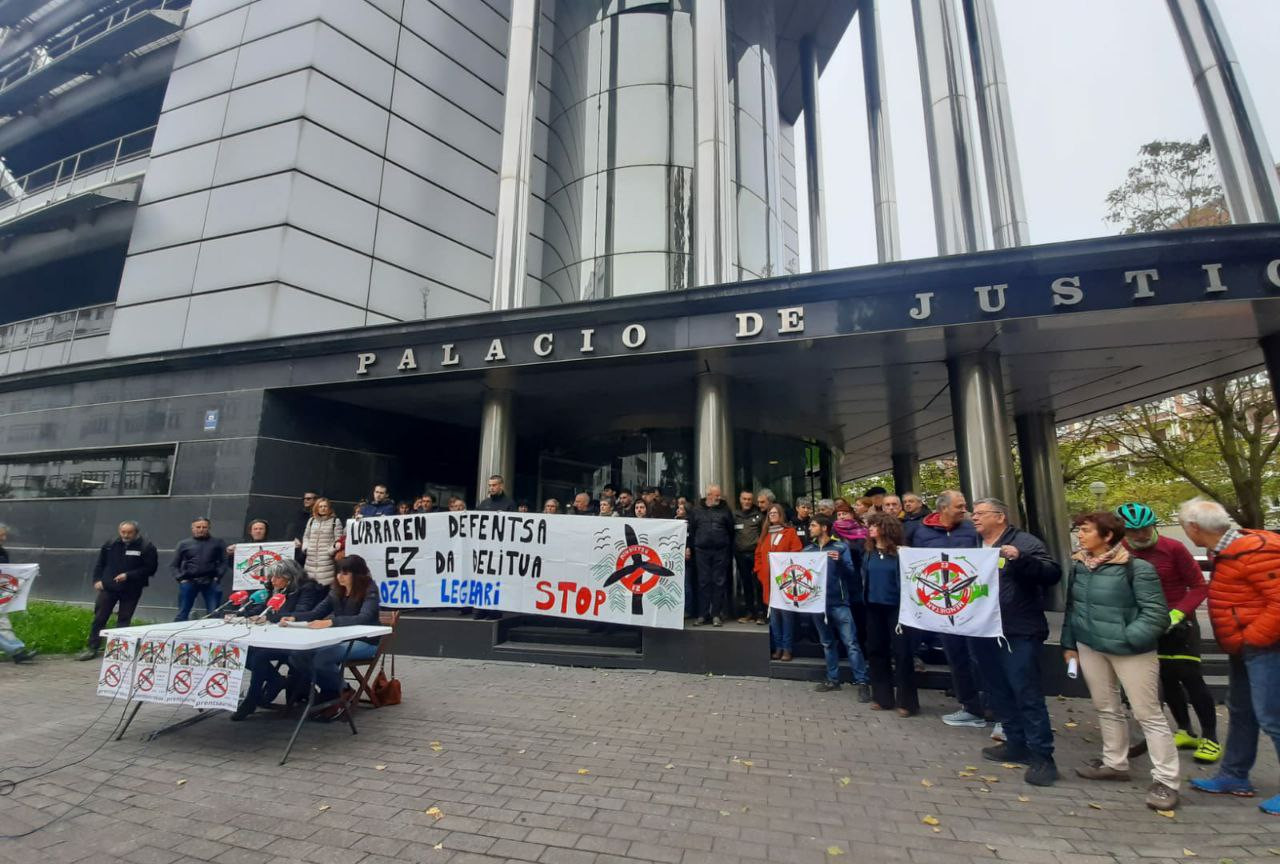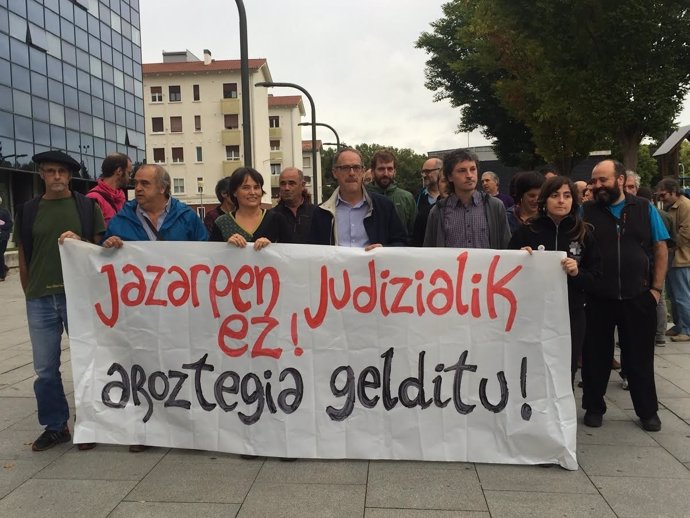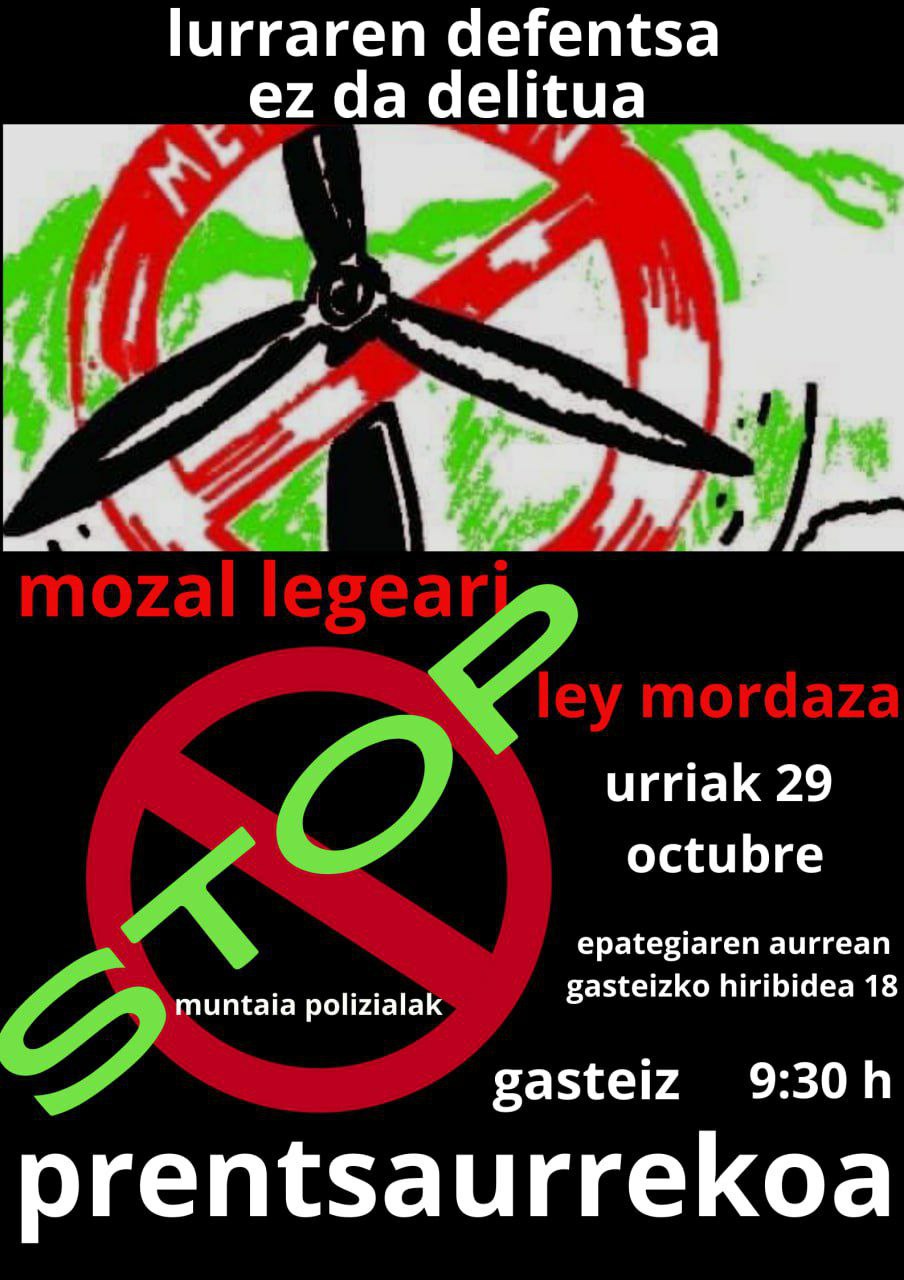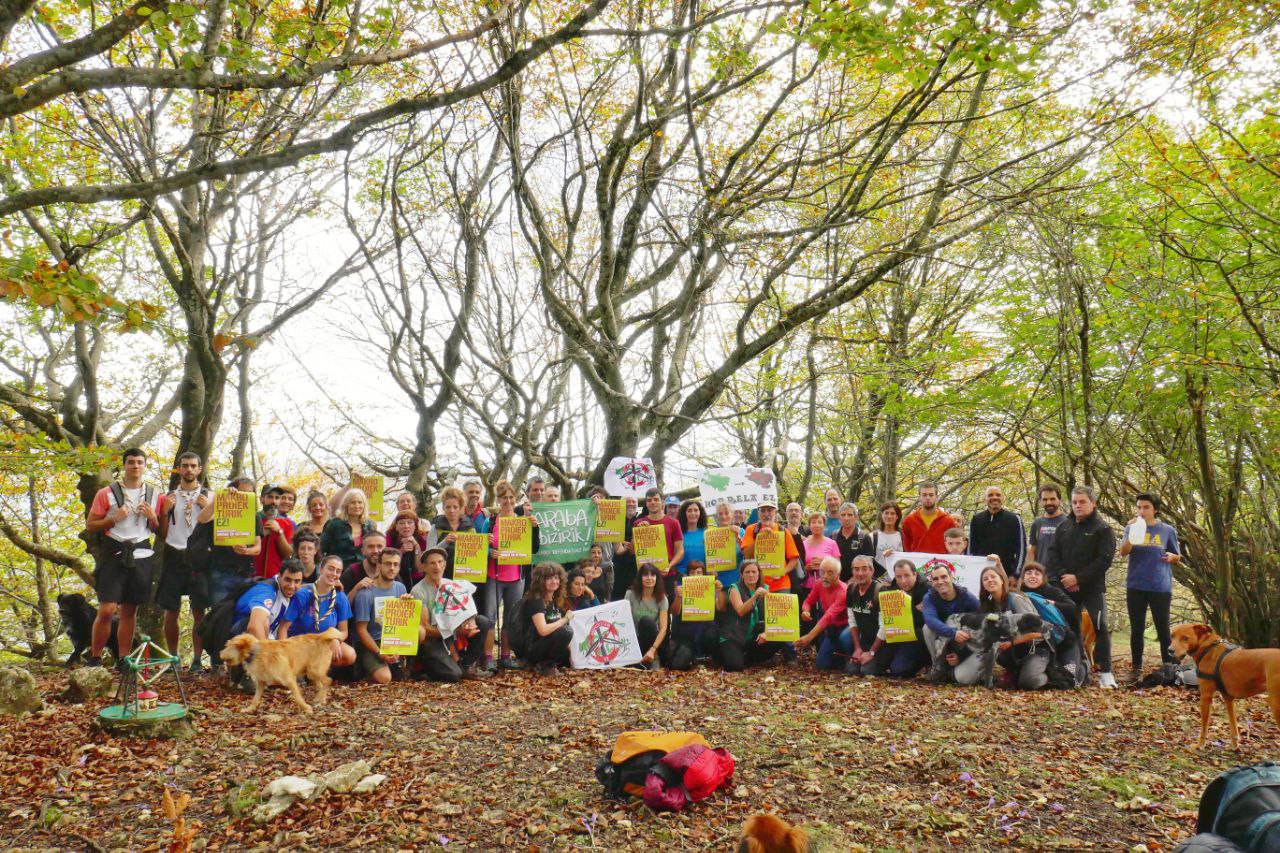2.711 applying the Mordaza Act in Aiaraldea
- Six years ago, the Organic Law on Citizen Security 2015/4 came into force. It is now on the threshold of a reform that has been regarded as a law against social movements and civil rights. In Aiaraldea, hundreds of people have been condemned by this law.

On July 1, 2015, the Organic Law for the Protection of Citizen Security 2015/4, known as the Moorish Law, entered into force. The new law was promoted by the Popular Party in the Government of Spain, replacing the previously existing Corcuera Law of 1992.
This Organic Law, composed of 54 articles distributed in five chapters, typifies as a very serious, serious or minor fault the various violations that citizens may commit, establishing for each type a concrete economic sanction: The very serious ones with fines of up to EUR 60,000, the serious ones with fines of between EUR 600 and EUR 30,000 and the minor ones with fines of between EUR 100 and EUR 600. All kinds of actions are punishable under the present Organic Law: unreported manifestations, organization of shows or unauthorized parties, refusal to identify oneself before a police officer, insulting a police officer, drinking alcohol in the street...
Criticism
Since the day of their approval, the social partners strongly criticized the Moorish law, understanding that its aim was to limit citizens’ freedoms and criminalize protests. The indefensibility of the citizens that the law brings was also rejected for allowing the arbitrariness of the security forces.
The Mordaza Law is absolutely punitive, and the administrative management of these penalties further deepens the situation of disprotection of citizens from the security forces. In fact, the penalties that take the administrative route are managed by administrative law, and both the interposition of resources and their resolution is a slow and costly process within the Spanish Justice. In addition, the records collected by public officials “are presumed to be truthful, except for evidence to the contrary.”
For all these reasons, during the first years of the Moorish Law, dozens of protests and initiatives were organized against it, as well as information campaigns aimed at citizens and social movements. In Amurrio, for example, the dynamic at the level of Álava against the Moorish law that was still being processed in early 2015, 'Arabako Gazteak raises!' promotion of projects.
At the international level, there were also pronouncements and messages against this law. “This law recalls the worst days of the Franco regime and does not correspond to a democratic nation,” wrote the newspaper The New York Times, to which some members of the United Nations also considered a measure against civil liberties.
Sanctions in Aiaraldea
The same year of its entry into force, in 2015, the Ertzaintza applied 24 times the Organic Law 2015/4 in Aiaraldea: 4 fines for resistance to authority, 9 fines for lack of respect for the police, 7 fines for drug use, 3 fines for use of weapons and a fine for damage to animals. That same year, the Ertzaintza imposed a fine of EUR 6,622 on 11 young people from the region for chaining in the Parliament of Vitoria-Gasteiz. In addition to the young people of Aiaraldea, another 12 Alaveses were also fined for this initiative in favour of returning the Basque prisoners home. Each of them received a fine of 602 euros and decided not to pay the fine with the intention of “disobeying the Moorish law”.
As of 2015, the number of sanctions imposed by the implementation of Organic Law 4/2015 in Aiaraldea has steadily increased: In 2016, 46 fines were fined, in 2017 there were 69 fines, in 2018 there were 75 fines and in 2019 there were 64 fines. These include 3 fines for not respecting the right of assembly regulated by Organic Law 1983/9, including a concentration in defense of the freedom of the young people of Altsasu against the headquarters of the Civil Guard of Llodio.
1,577 fines in 2020
Last year, however, the implementation of the Moorish Act in Aiaraldea culminated in the processing of a total of 1,577 fines by the Ertzaintza. In fact, during the period of domestication before COVID-19, state security forces used the 2015 law to control it.
Thus, last year 1,294 fines were imposed for disobedience, of which 884 were for not respecting the higher alarm and 352 for not respecting the limits of circulation or meeting limitations, as for not complying with the nocturnal curfew, gathering more than six people or moving to another municipality.
In other types of fines, 2020 also reached all records: 87 fines for disrespect of police officers, 144 fines for drug use, 20 for the use of citizen weapons, 4 fines for hindering police work...
2021 on the same road
One more year, hundreds of people have been sanctioned by Moorish law in Aiaraldea: Police have imposed 856 fines between January and October, of which 580 have been for non-compliance with restrictive measures imposed as a result of the COVID-19 pandemic.
For the first time in these six years, the Ertzaintza has imposed sanctions for serious disturbances in Aiaraldea, a total of 9, many related to Tubacex’s indefinite strike.
Police recording
Regarding Tubacex's strike, the Ertzaintza has used Organic Law 4/2015 to prevent police action from being recorded, which has allowed the identification of dozens of people. The general idea is that the Moorish law prohibits the recording of the police, but in this respect the reality is different. The rule is clear: you can shoot cops. The use of these images can lead to the infraction, not to the capture of them themselves. The dissemination of images that “endanger police security or the success of the police operation” shall be deemed to be an infringement. In addition, a possible complaint by the National Police should provide sufficient grounds for these arguments. But the arbitrary application of the Moorish law will always be there. The police could identify citizens by the fact that they are recording, in order to investigate the possible subsequent misuse of these videos and photographs. In no case can it prevent the filming of images.
Reform of the law
The debate on the amendment of the Organic Law on Citizen Security 2015/4 is currently open. The PSOE and the United Nations Podemos, government partners in Spain, have agreed to modify the Moorish law on the basis of a proposal submitted by the PNV.
Various amendments are being prepared to introduce legislative changes. This has sparked the indignation of the police unions in Spain, which supposedly limit police action, as the veracity of the police forces could be questioned in an eventual judicial proceeding. In any event, it remains to be seen what it is going to bring and what it is going to maintain the reform itself.
Nine years ago, pending the adoption of the Mordaza Law, the Council of Europe itself said that the law was going to be “disproportionate” and its “great concern”. “This law is a reactionary and conservative absurdity to criminalize street protest and criticism,”... [+]









